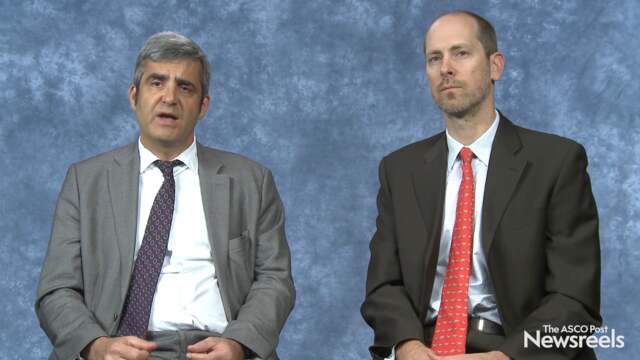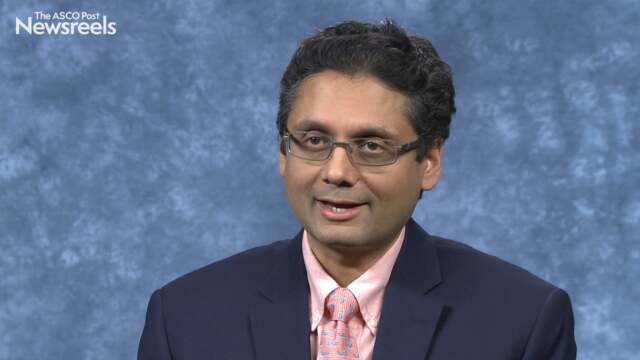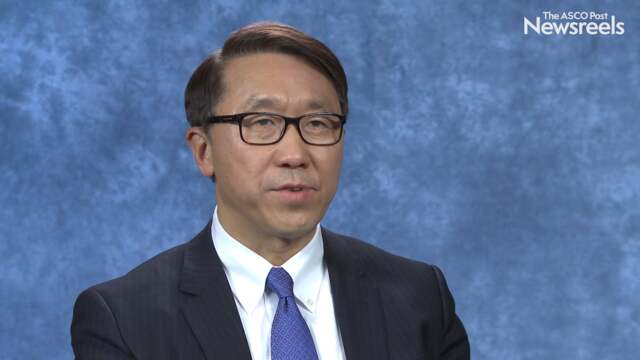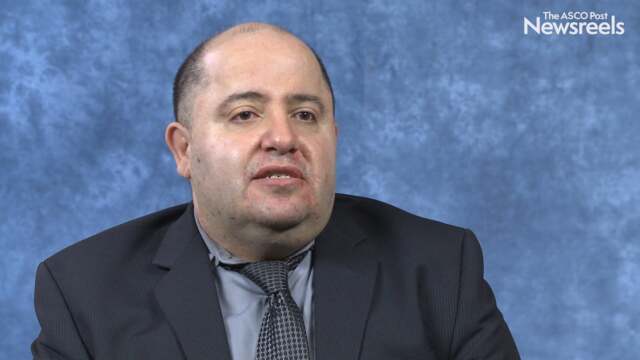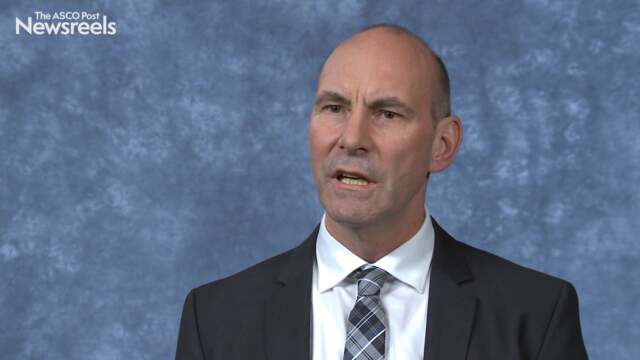Steven D. Leach, MD, on Pancreatic Cancer: Keynote Lecture
2018 Gastrointestinal Cancers Symposium
Steven D. Leach, MD, of Dartmouth University’s Norris Cotton Cancer Center, discusses the personalized approach that GI cancers will require to make rational use of immunotherapy—including a subset of pancreatic cancers, which appear to be highly immunogenic and are associated with long-term survival.
Thierry André, MD, of Hôpital Saint-Antoine, and Michael J. Overman, MD, of The University of Texas MD Anderson Cancer Center, discuss findings from their respective CheckMate-142 studies on nivolumab and ipilimumab in patients with DNA mismatch repair–deficient/microsatellite instability–high metastatic colorectal cancer (Abstracts 553, 554).
Manish A. Shah, MD, of Weill Cornell Medicine, discusses phase III study findings on cisplatin plus capecitabine or fluorouracil with or without ramucirumab as first-line therapy in patients with metastatic gastric or gastroesophageal junction adenocarcinoma (Abstract 5).
Andrew X. Zhu, MD, PhD, of Massachusetts General Hospital, discusses study findings on pembrolizumab in patients with advanced hepatocellular carcinoma previously treated with sorafenib (Abstract 209).
Khaldoun Almhanna, MD, MPH, of the H. Lee Moffitt Cancer Center, discusses the long-term outcome of a phase III study that explored the significance of extensive intraoperative peritoneal lavage in addition to standard treatment for ≥ T3 resectable gastric cancer (Abstract 1).
Florian Lordick, MD, of the University Medicine Leipzig, discusses study findings on intraperitoneal immunotherapy with the antibody catumaxomab for patients with peritoneal carcinomatosis from gastric cancer (Abstract 4).
